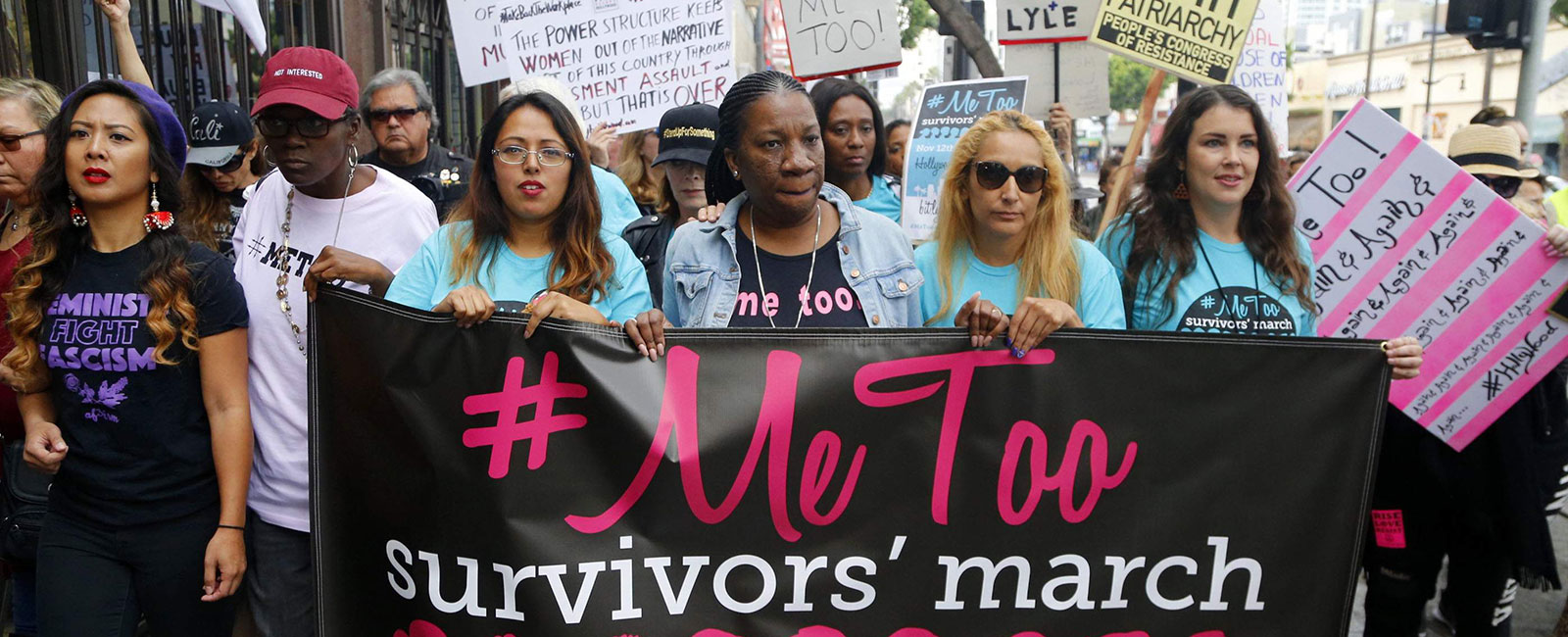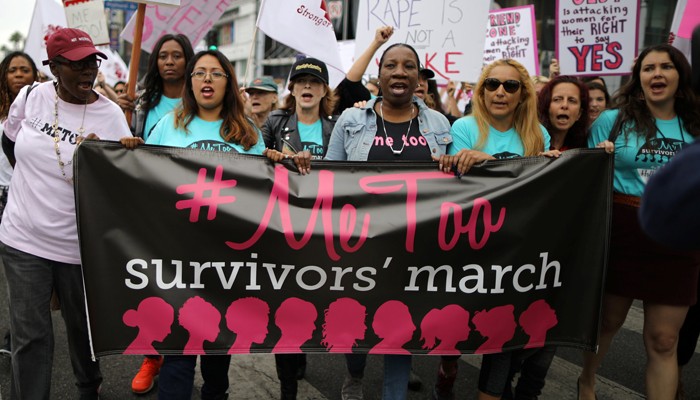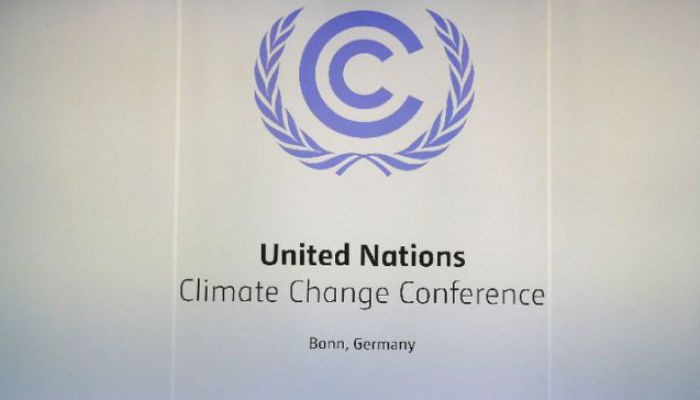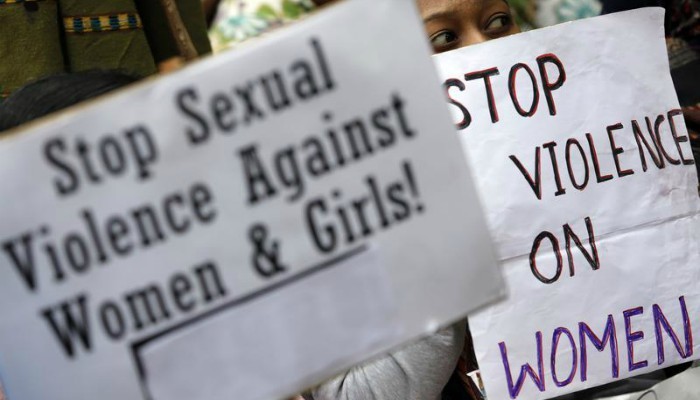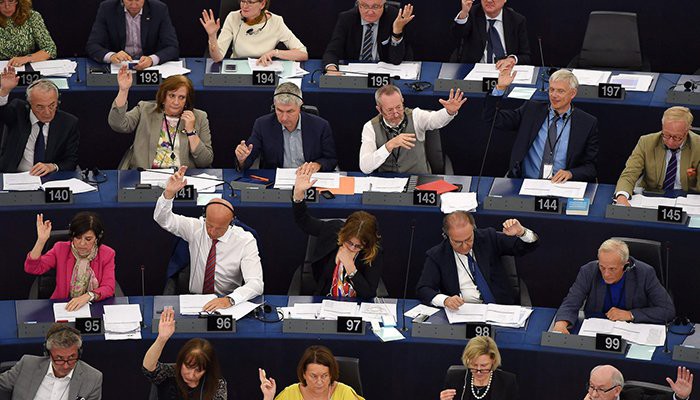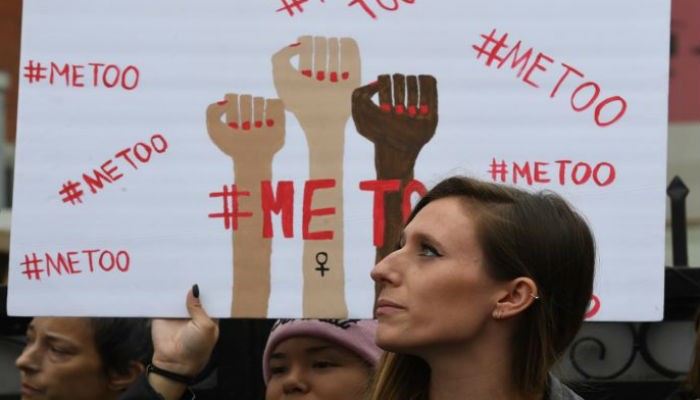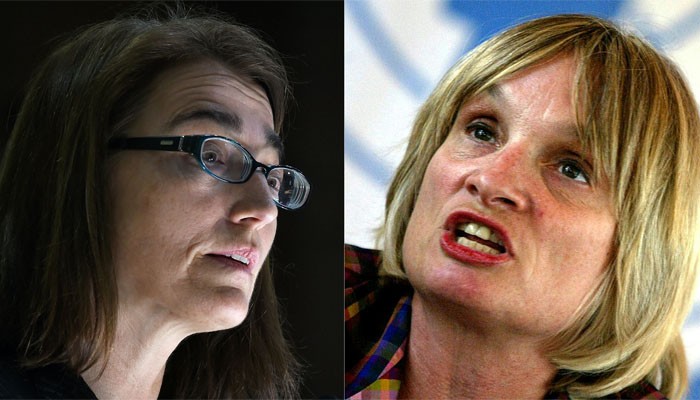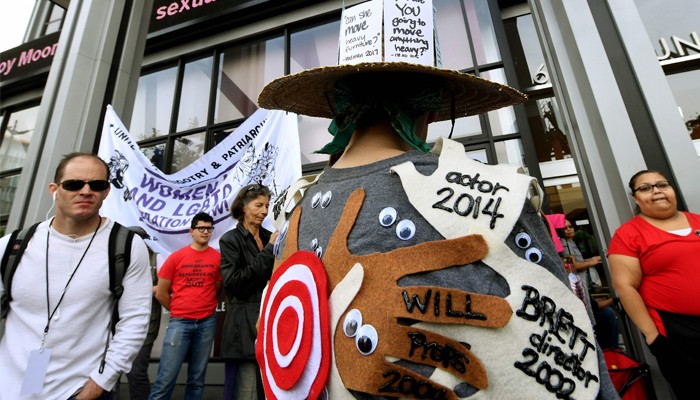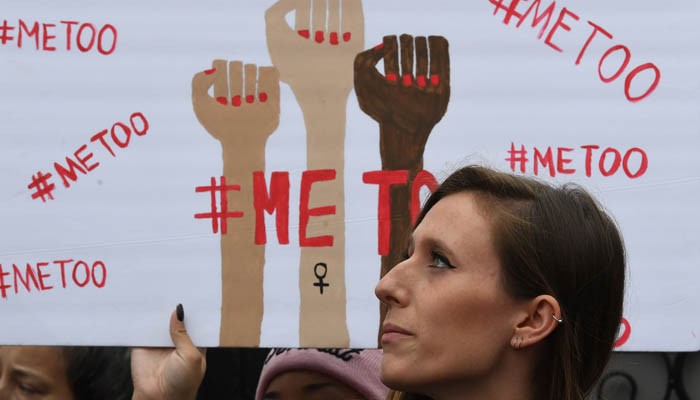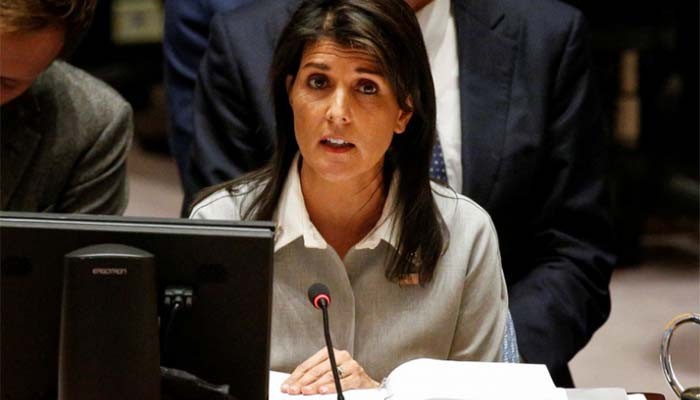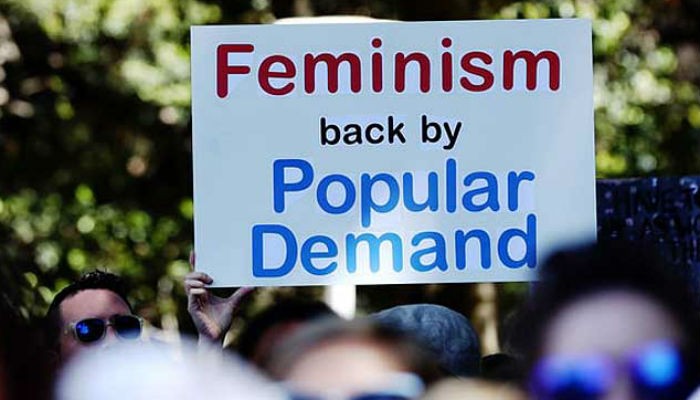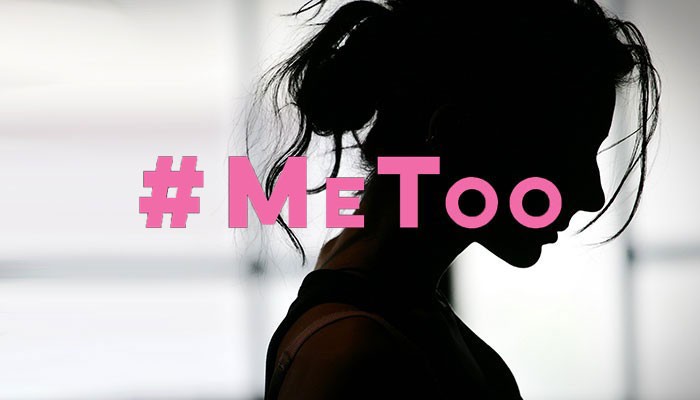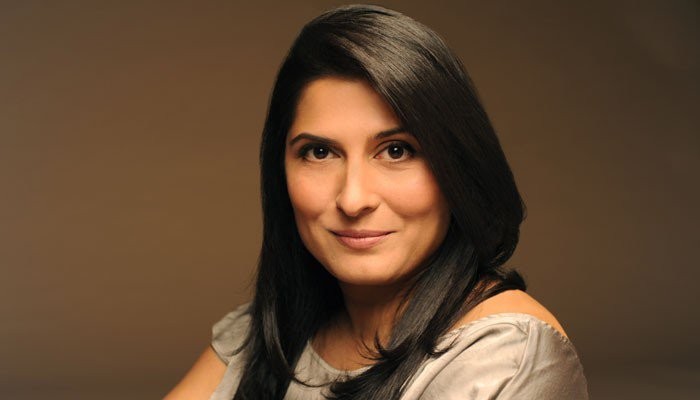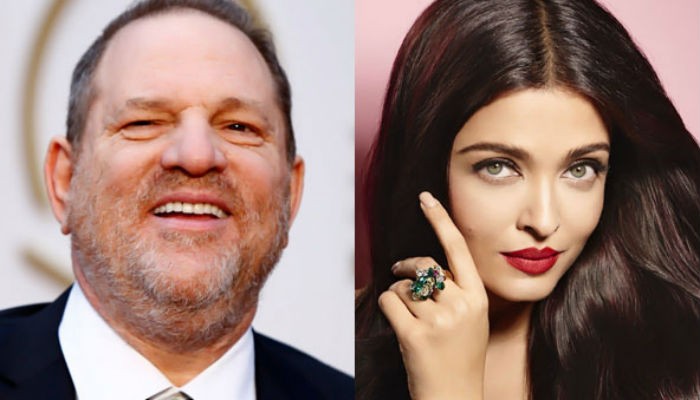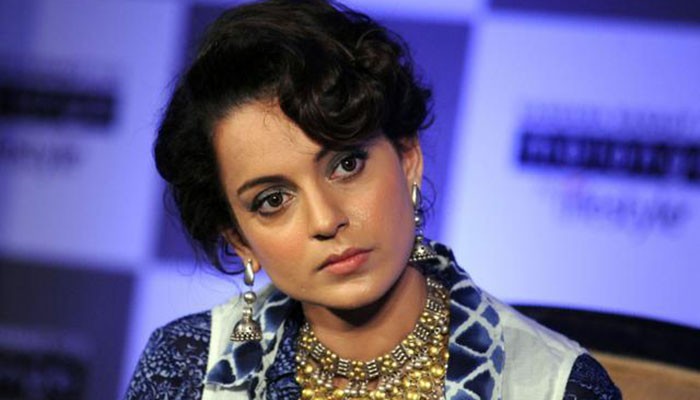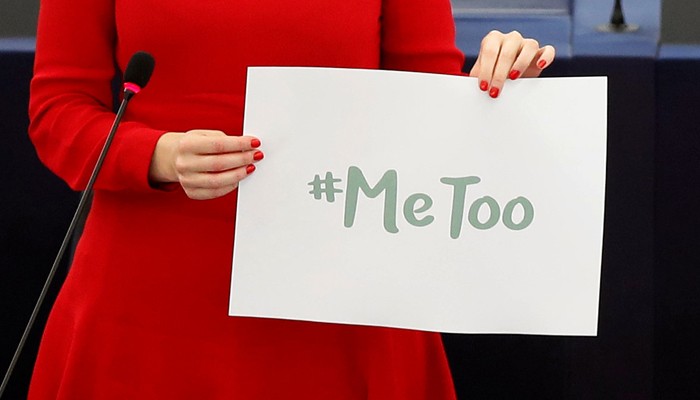#MeToo and the worldwide reckoning it brought in 2017 — Part II
'Men sexually harassed because they could. Women are talking today because, in this new era, we finally can'

Women march; Hollywood’s #MeToo rally
On November 13, hundreds marched in the heart of Hollywood to support victims of an abuse now revealed to be a pervasive feature of American life.
Women made up a majority of the crowd, although men made a strong showing of support. Burke was also part of this march.
“I’ve had personal experiences of friends, of co-workers who were harassed [and] they were pressured and harassed by the company for speaking out against assault and sexual harassment in the workplace,” LA resident Steven Murphy, 51, had said.
Protesters in the "Take Back the Workplace" and #MeToo Survivors' marches walked along the “Walk of Fame”, noting, as they passed them the stars of actors and producers accused of sexual harassment.
They walked side by side past the tourists and a man wearing a "Whiskey Made Me Do It" T-shirt to gather for a rally of rousing speeches, as per Press Democrat.
"Sending you love and support from thousands of miles away!" Patricia Arquette — who was unable to join — had tweeted.
Their chants included, "Harvey Weinstein is a joke, women workers just got woke," "Survivors united, we'll never be divided," and "Whatever we wear, wherever we go, 'yes' means 'yes' and 'no' means 'no.'"
‘Handful of complaints’ at world bodies
With sexual harassment scandals rocking almost all avenues around the world, a "handful of complaints” also cropped up at the United Nation’s COP23 climate talks, according to UN climate secretariat spokesman Nick Nuttall.
For the first time in more than two decades of UN climate conferences, the Secretariat informed delegates of the "zero tolerance" approach to sexual harassment.
However, it did not have enough money for a "dedicated team" on sexual harassment, UN Climate Chief Patricia Espinosa mentioned, urging for "a lot of support."
"As you know, there are many situations where people... don't come forward formally. […] It takes a lot of courage” for women to make an accusation.
It is also interesting to note that Dominique Strauss-Kahn — the former chief of the International Monetary Fund (IMF) — allegedly sexually assaulted a chambermaid in New York's Sofitel hotel, which, itself, was questioned by investigators over waiting “an hour” to call authorities after the organisation’s boss “left the hotel in a hurry”.
Strauss-Kahn was also a front-runner for the French presidency before his subsequent arrest.
A French court, however, acquitted him on June 12, 2015, of sex crime accusations — including instigating an organization of sex parties with prostitutes — in what became known as the transatlantic scandal's final chapter.
With his lawyers describing the maid's interview as "unseemly", the French diplomat settled financially with Nafissatou Diallo — the Sofitel maid and his accuser — in an undisclosed deal in 2011 after New York prosecutors abandoned criminal charges.
He had flatly denied any wrongdoing.
The avalanche of sexual misconduct allegations is just beginning, the UN Women head had said, adding she expects many more women to come forward.
"It has just started. I think we are still going to see many more women coming out," Phumzile Mlambo-Ngcuka — the executive director of UN Women — stated in an interview.
"We probably haven't reached that point where there is a strong belief, among enough people, that this is profoundly traumatizing, that it creates a pain for many women that never ends."
The official said she was disturbed by the "loud silence of men" who she said have yet to stand up, distance themselves from the predatory men, and "preach about the importance of behaviour change."
"There is a need for men to actually react and also own the problem and commit to some remedial action."
Enter Europe
Furthermore, the European Parliament (EP) called for a committee of outside experts to investigate sexual harassment at the institution, as its procedures came under scrutiny amid increasing talk of harassment within the EU, including so-far anonymous reports of rape and abuse of power among parliamentary staff.
It said that "all too often" such assistants are afraid to speak out as a special "loss of trust" clause in their contracts means they can be sacked at very short notice.
There is no global data on sexual harassment but UN Women cited EU surveys that show 45 to 55 percent of women have experienced sexual harassment from the age of 15 in the European Union.
Yet, Italy disappointed a month later, when, in October, four-time former prime minister Silvio Berlusconi’s right-wing bloc relished a huge political victory in the Sicily elections.
Silvio is accused in several cases of sexual misconduct.
The Nobel Literature Prize-awarding Swedish Academy also quivered under a sex scandal when several members, their wives, and their daughters accused an influential person — with close ties to the prestigious institution — of assault.
Newspaper 'Dagens Nyheter' published 18 women’s testimony, wherein they claimed the said influential figure assaulted or raped them between 1996 and 2017
"Everyone knows and everyone has always known," that he was attacking young women, an accuser noted.
The women said they remained silent out of fear of jeopardising their careers because of the man's connections.
After a "crisis meeting", the academy subsequently announced it had cut all ties with the accused.
Meanwhile, over 220 serving and former US diplomats, defence, and national security officials added their names to the #MeToo movement in a letter saying sexual harassment is rife in their professions.
In the letter posted online, the "women of the national security community" — including those from the Departments of Defense and State, White House, and the intelligence agencies — protested abuse.
"We, too, are survivors of sexual harassment, assault, and abuse or know others who are," they wrote in the letter headed #metoonatsec.
Comedian-turned-senator Al Franken — a Democrat already under scrutiny over multiple allegations of misconduct — offered fresh apologies late November, while veteran Conyers, 88, the longest-serving lawmaker currently in Congress, left his leadership post at the Judiciary Committee.
"I know there are no magic words that I can say to regain your trust and I know that's going to take time. I'm ready to start that process and it starts with going back to work today." Franken had said.
Adding to the Capitol Hill discomfort, Trump — who himself faces multiple accusations of harassment — doubled down on his support for Moore, the embattled Republican Senate candidate from Alabama who stands accused of molesting or harassing teenage girls as young as 14 but who eventually lost.
The Senate approved a resolution calling for mandatory anti-harassment training for all senators and staff, whereas the House of Representatives was set to vote on a similar measure.
The Congressional Office of Compliance acknowledged paying over $17 million to victims in more than 260 settlements since 1997.
Congresswoman Jackie Speier's ME TOO CONGRESS Act aimed to do away with such requirements and force lawmakers — who settle harassment claims — to repay the government the award amount.
"This is not a victim-friendly process," Speier — herself a victim of harassment — had said. Her legislation appears to have the support of top House Democrat Nancy Pelosi, who called for "an end to the days of secret settlements paid for by taxpayer dollars".
"No matter how great an individual's legacy, it is not a license for harassment," Pelosi tweeted.
"They have to change the organisation's culture," Rice University's psychology professor Eden King said, noting that hyper-masculine work environments often exacerbate the problem of harassment and abuse and that just teaching the law was not enough.
"I think we have to change men's and women's roles in society."
An aggravating factor was that the very high earners may enjoy a degree of impunity with regard to sexual misconduct because they are such a financial asset to their employer, Christine Saah Nazer — an Equal Employment Opportunity Commission (EEOC) spokeswoman — added.
In a surprising comment on CBS programme Face the Nation, US Ambassador to the UN Nikki Haley applauded all women who have come forward, sating, “I‘m proud of their strength. I‘m proud of their courage.”
“Women who accuse anyone should be heard. They should be heard and they should be dealt with, and I think we heard them prior to the election,” she said.
“I think any woman who has felt violated or felt mistreated in any way — they have every right to speak up.”
Asked how people should assess the accusers of the president, Haley said, “I know that he was elected but women should always feel comfortable coming forward and we should all be willing to listen to them.”
More than 10 women have accused Trump of sexual misconduct before he took over as the US President.
In a surprising turn of events, pop star Taylor Swift's week-long trial led to a $1 victory for the singer against radio show host David Mueller.
A Denver judge and jury ruled in Swift's favour over her allegation that Mueller lifted her skirt and assaulted her back in 2013. "I am critical of your client for sticking his hand under my skirt and grabbing my ass," Swift had said in the court.
Time Magazine, in a huge move recognising victims and survivors of sexual assault and misconduct, named "The Silence Breakers" as Person of the Year (2017).
"Movie stars are supposedly nothing like you and me. They're svelte, glamorous, self-possessed.
Yet it turns out that—in the most painful and personal ways—movie stars are more like you and me than we ever knew," it wrote.
Another, significant albeit small, win was when 'feminism' became the US dictionary's 'Word of the Year'.
Pakistan and South Asia
Brave Pakistani women shared stories of abuse, with #MeToo becoming a top Twitter trend.
“I remember 2 salesmen at a shop in Dubai who winked+sang @ me fearlessly for 20 min, kept following me & asked me to “come upstairs” with em,” Pakistani-origin Buzzfeed blogger Imaan Sheikh — 11 at that time — wrote.
Blogger Ayesha Mirza — who initially thought “this was nothing more than another social media trend” but posted her story later nonetheless — says she talked to some women hailing from conservative families.
While they were happy for Mirza sharing her story, they, themselves, couldn’t amid fear that if their families were to find out, they would lose whatever meagre freedom they had.
“Usually, this freedom involves nothing more than going to work, university, gym, and drama club or out shopping with friends. The thinking falls in line with those who blame the length of the skirt for a rape crime,” she wrote.
The debate was then fuelled ahead by Pakistan’s celebrated, Oscar-winning filmmaker Sharmeen Obaid-Chinoy, who had said a private hospital’s male doctor sent her sister an unsolicited Facebook friend request following a medical examination.
"There are zero boundaries in #pakistan! Last night my sister went to AKU emergency & the doctor who tended to her tried 2 add her on FB. I don't quite understand how doctor tending 2 emergency patients thinks it's ok to take a female patient info & add her on FB! Unfortunately the doctor messed with the wrong women in the wrong family and I will definitely report him! Harassment has 2 stop!” she had tweeted.
The doctor, she wrote later, was consequently suspended.
The dispute raged on locally for days between those who accused the filmmaker of throwing her weight around and others who insisted it was a breach of doctor-patient privileges.
In neighbouring India, Aishwarya Rai Bachchan's talent manager Simone Sheffield revealed that Weinstein had once requested to see the actress alone but her representative had saved her from him, according to Times of India.
Sheffield explained the “big bully pig" had asked her to leave the meeting [with Rai] several times but she refused, prompting Weinstein to corner her when they were leaving his office to ask, "What do I have to do to get her alone?"
Eventually, he resorted to his usual threatening behaviour, telling Sheffield would never work in the business again.
Prior to that, Indian actress Divya Unny had flown to Kerala back in 2015, thinking the trip was for a business meeting with an award-winning director for an upcoming role.
Instead, the director called her to his hotel room at night, propositioning her for sex and telling her she would have to make compromises for success in the industry.
”You always hear of actresses getting called by directors to hotel rooms at night, but I didn’t think twice because I was going in with a reference,” Unny had told Reuters.
The star said she rejected the director's advances and left without a role in the movie.
Three other women involved in Bollywood had told Reuters that Unny’s experience isn’t unique. Yet, the movie space has been reluctant to name and shame the perpetrators.
“The way men are being called out in Hollywood right now, I don’t know if it can happen in India,” said Alankrita Shrivastava — a director whose last film Lipstick Under my Burkha was acclaimed for its examination of women and sexuality.
Mukesh Bhatt — who co-heads production house Vishesh Films — said India’s film industry should not be singled out and was limited in what more it could do to prevent harassment.
“What can we do? We cannot do any moral policing,” Bhatt said, adding, “We cannot keep moral cops outside every film office to see that no girl is being exploited.”
“But today’s woman is also not as simple as she pretends to be,” he had claimed, saying "there are women who are exploitative and very cunning. Also blatantly shameless to offer themselves”.
New Delhi, alongside Brazil’s Sao Paulo, was paired as the world’s worst megacities for sexual violence against women in a Thomson Reuters Foundation poll.
Earlier this year, Malayalam film industry's Gopalakrishnan Padmanabhan Pillai — popularly known as Dileep — was arrested by police who accused him and several others of kidnapping and molesting an actress.
“He says it is a completely false case. He was framed by the police and some enemies,” Dileep's lawyer B Raman Pillai told Reuters.
“This is a proactive step taken by (the ministry) in the wake of the worldwide social media campaign #MeToo,” Maneka Gandhi — the minister for women and child development — said, referring to sexual harassment e-box (SHe-box), a tool to register complaints of sexual harassment at work.
Since July, when SHe-box was launched, nearly 350 complaints have been recorded, according to Gandhi.
Kangana Ranaut — one of the few Bollywood actresses who has publicly spoken out about the sexual assault and harassment and has appeared in 30 films in the past decade — explained she had faced “severe sexual exploitation and harassment at the work place”.
“Most people find it hard to open up about such experiences,“ she had said, mainly since ”victim shaming is very common in our society, it’s done brutally and openly.”
Shrivastava, the director, said the kind of cinema Bollywood often produces demonstrates its attitude towards sexual harassment and assault.
For example, two of this year’s hit movies — Toilet – Ek Prem Katha and Badrinath Ki Dulhania — showed the hero stalking the leading lady, taking pictures of her without her knowledge.
“For decades, we have created cinema where harassment is depicted as love,” Shrivastava said.
“And that reflects the mentality of the creators — that they keep portraying it, and excusing it in the name of commerce.”
The High Spirits debacle
Late in 2017, renowned talk show host Faye D'Souza brought to her panel the horror stories of sexual abuse, saying “we’ve understood the magnitude of the problem” and that “it’s everywhere and it’s being normalized”.
Her case in point was a Pune establishment called High Spirits, the owner of which — Khodu Irani — had been accused of “obviously being sexist, being misogynistic, and harassing female customers”.
“High spirits seems to think that sexual harassment is cool and treating women like objects is the right thing to do,” D'Souza exclaimed, adding, as she played a video, “Look at him, he obviously thinks he is cool and funny.”
The host noted how the problem was divided on the basis of education or religion.
“Being touched without your permission, being groped, being called names like ‘cleavage’, being made a victim of sexual comments in front of your colleagues,” she stressed, adding that she would help anyone who would write to her and even providing her personal contact information.
“Let’s strike terror in the heart of every groper, molester, and flasher in this country!”
Speaking to men wondering why she was championing women and their rights, D’Souza said, “If it bothers you, close your eyes, stay at home, and get on the internet like the troll that you really are because that's where you belong!”
“None of us care for your opinion anymore. [So] now we know our rights, where are you going to hide today?”
An October story by Indian publication Firstpost talked about Sheena Dabholkar — a local journalist — who started disclosing and talking about the harassment at the venue.
"The behaviour is literally excused and the abuse is minimised in favour of 'they're harmless', 'arrey Irani dudes are like this, a bit mad' etc.”
"My friends who worked at High Spirits have all been fat shamed or slut shamed. None have spoken out. They have told me they can't," she had written, adding that “awards” were presented to women attendees for “best [cleavage]”.
Aparna — another Twitter user who had had personal experience of such behaviour at High Spirits — wrote, "It had that obvious and typical frat boy culture. And believe me knowing High Spirits, the owner and his coterie, this was no stray or isolated incident".
In a Medium post, ex-employee Divya — who only felt comfortable enough to reveal her first name — gave an inside view, saying “she worked at the club for three years until 2013 in the capacity of a PA, social media manager, front desk employee and artist manager”.
Divya wrote about being groped and bullied by Irani, following which she discussed the matter with her boss’ wife.
Even All India Bakchod founder Tanmay Bhat wasn’t left alone.
A guest on D’Souza’s show also threatened her, challenging her “to show up to my workplace wearing underwear, [just] because I want to be equal to men”.
“I’ve seen lots of men just like you. I’m not afraid of you. […] You threatened me with something so cheap, you tried to rattle me when I’m doing my job”, she blasted the panellist.
“You think, all you men think, if you rattle all women when they’re doing their jobs, that they will run back into their kitchens, they will cover themselves up, and leave the world for you again to conquer.
“I have news for you, we are not going anywhere!”
This is the second and concluding part of an analysis on how 2017 toppled sexual predators. Read the first part here.
For what we have already covered — and additional updates — follow Geo.tv’s trending tag: #MeToo.



